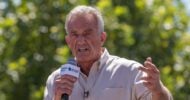What if recovery from depression was not only about reducing symptoms, but about rekindling a person’s inner spark?
During my years as a Navy nurse in mental health, I witnessed countless people navigating the heavy fog of depression. Many were offered medication, therapy, or structured activity schedules. These approaches saved lives and improved outcomes. Yet sometimes, despite best efforts, patients still felt like they were going through the motions, managing symptoms but not reconnecting with what made life worth living. That gap led me to think about a different way of framing recovery: not just fighting darkness, but rekindling light. I call it the Inner Spark Framework.
The metaphor of the spark
The “inner spark” is a metaphor for the unique source of vitality, creativity, or joy within each person. For some, it may be music. For others, gardening, writing, or acts of service. Depression often extinguishes access to this spark, leaving people feeling disconnected from themselves. But sparks do not disappear. They can be sheltered, reignited, and nurtured back into flame.
Three phases of the framework
Rather than replacing existing therapies, the Inner Spark Framework is designed to complement them by adding a metaphorical and practical lens. It revolves around three phases:
Discovery
Most strength-based approaches focus on identifying what people already know they are good at or enjoy. Discovery expands this by inviting exploration of both familiar and new sources of joy. For one person, it might mean returning to painting after years away. For another, it could be trying something entirely new, like dance or gardening. The point is curiosity without pressure, a reminder that recovery can include play, experimentation, and surprise.
Evolution
Interests shift as healing progresses. What feels meaningful in the early stages of recovery may change later. Someone who starts with solitary journaling may, months later, find joy in teaching creative writing to others. Evolution normalizes this change, reframing it not as inconsistency but as growth.
Choice
Recovery is sustained when people feel agency. Offering choices within safe environments empowers individuals to guide their journey. Even small choices (like whether to engage in an activity alone or with others) can reinforce autonomy and hope.
The Inner Spark Framework does not claim to solve depression. Instead, it offers a hopeful metaphor and flexible tool to complement existing approaches. By emphasizing discovery, evolution, and choice, it helps patients see recovery not as a rigid path but as a living, adaptive process. This framework reflects my broader belief that healing happens through connection, both to others and to the spark within ourselves. For clinicians, this perspective may serve as a reminder to make space for creativity and exploration. For patients, it offers a gentler invitation: to look for sparks (old or new) that can guide them back toward meaning. In the end, depression care is not only about extinguishing darkness. It is also about rekindling light.
Elias Dejesus is a nurse.



















![AI censorship threatens the lifeline of caregiver support [PODCAST]](https://kevinmd.com/wp-content/uploads/Design-2-190x100.jpg)

